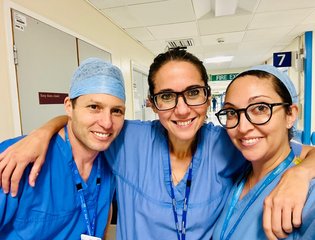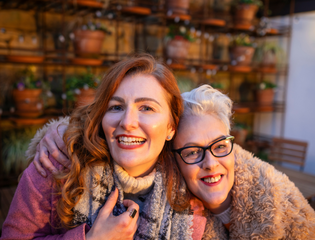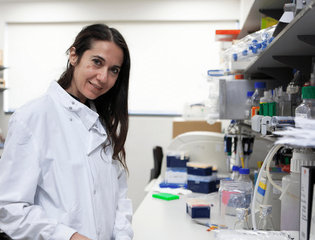Mary: Chemotherapy wasn't an option, so surgery was my only hope
Mary, a grandmother from Glasgow was told “no” to ovarian cancer surgery she needed. She had to fight, and campaign but eventually she was treated over 400 miles away, at Hammersmith Hospital by Professor Christina Fotopolou.
No women should have to travel so far, and fight so hard to get access to the surgery she needs.
I’ve had breast cancer and now ovarian cancer twice because of a rare genetic mutation called RAD51D but the ovarian cancer recurrence was by far the most traumatic experience. It was terrible.
I had had a niggling in my pelvis, and the cancer was picked up by a routine scan.
My consultant was incredible, but I was told that they wouldn’t be able to operate because my ovarian cancer was a recurrence and not the first time.
I was told that it was because there was such a backlog of ovarian cancer patients waiting for surgery during COVID. NHS Scotland had decided to only allow operations for women after their first diagnosis.
Chemotherapy wasn’t an option, so surgery was my only hope.
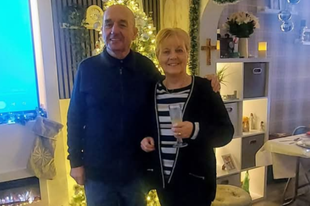
Mary with her husband at Christmas
I was very anxious. I wanted to know what was going to happen, if it was going to be right for me. When they told me the cancer had come back but that they couldn’t operate – their hands were tied – it was terrifying.
Mary and her family decided they weren’t going to take ‘no’ for an answer.
Well, we decided to fight. When your life’s on the line you have too. My daughter emailed so many hospitals around Scotland, and they all said the same thing, they couldn’t operate. I was on some cancer forums, and I heard a story about people who had been sent to Christina Fotopolou. She agreed to operate on me and that was such a relief.
The next obstacle was getting to London. It’s 400 miles from where I live to Hammersmith Hospital, and Professor Fotopoulou said I couldn’t travel on public transport.
My daughter took a week off work and drove me and my husband down. I get emotional thinking about it actually.
We had to pay for somewhere for them to stay as the hospital had room for one person to stay, but not two. Because it was COVID, they couldn’t come and visit me anyway and so it would have been awful for it to only be one of them. This way they had each other and it was such a comfort knowing they were nearby, even if I couldn’t see them in person.
Luckily my daughter found out about a charity that helped support people who had to travel to Imperial for treatment, but we didn’t know they would help cover the costs before we booked it all. It was an extremely stressful time and to get that money to help was such a relief.
I was in hospital for five days. The aftercare was first-class.
When I spoke to Professor Fotopoulou afterwards, I said, ‘Can you tell me — was that a very complicated operation?’ And she said, ‘Honestly, it was one of the easiest ones we had to do.’
I was fighting for my life, my daughters were fighting for me, my husband, friends, family — everyone. Not everyone has that network, that determination.
But it shouldn’t be that way. Not everyone has the strength or the support network to campaign like that. People shouldn’t have to fight for their lives in this way.
I’m really proud to have started a Scottish support group. We talk to each other, give advice, share what we’ve been through and there are now over 200 women in it.
Some of the stories are heartbreaking — one woman paid £41,000 for her treatment, another paid £26,000, and others have had to do all their chemotherapy and still wait to get on the surgical list. So, it is still happening.
That’s exactly why this surgical fellowship programme is so important — it should not matter where you live. Your postcode should not dictate your chance of survival.
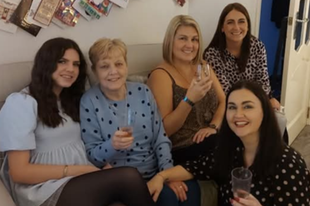
Mary and with her family at Christmas
Despite slow progress, Mary continues to campaign. "If it helps even one other woman get the treatment she needs, it’s worth it.”
Mary’s story is a testament to the power of advocacy, family, and community. She continues to fight — not just for herself, but for every woman facing ovarian cancer.
